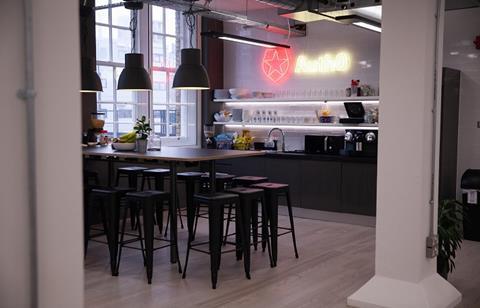
Authentication and authorisation platform Auth0 is a rapidly growing organisation. In 2018 alone, it went from approximately 200 members of staff to around 430, and by the end of 2019 there are plans to increase this number to 600.
Auth0 has five offices, situated in Buenos Aires, London, Washington, Tokyo and Sydney, but around half of its current workforce are located remotely, spread across 36 countries.
Clayton Moulynox, director of culture at Auth0, says: "We are hiring, across the world, the best people for the job. The [organisation] is really founded on the principle that work is a thing you do, not a place you go."
This approach allows Auth0 to hire the best talent for each role, regardless of geographical limitations, but there are also challenges associated with a widely dispersed workforce.
Some of these are practical issues, for example teams often comprise members in multiple time-zones. Other considerations, however, are less clearly defined. "The biggest challenge with having a remote workforce is making sure that they're engaged and connected," explains Moulynox.
To combat this, Auth0 uses an array of programmes, including team messaging app Slack, Google Apps, collaboration software Confluence and video conferencing programme Zoom.
What makes the organisation unique, however, is not the tools it uses, but the working practices it promotes, says Moulynox.
One key example of this is its use of Donut, a bot within the Slack application. Every second week, the bot connects three employees at random and encourages them to meet, either in person or, for example, over a video call via the Zoom app. This initiative was launched in April 2018.
"There is no agenda," Moulynox explains. "The priority is just to meet other human beings and form a relationship. One of the byproducts is discovering great connections internally that might help [employees] with [their] role."
This is a particularly useful initiative because many employees have less than one year tenure, and are in the same early stage of establishing relationships.
"The number one issue for remote [employees] is loneliness," continues Moulynox. "That's another reason we really want to focus on the relationship culture and make sure that remote [staff] are both physically and mentally in a good place and are therefore more productive and enjoying themselves more."
Since October 2018, Auth0 has also been trialling integrating this relationship culture into the onboarding process. Managers are prompted by the Donut bot to select a buddy for each new starter; the programme then prompts these buddies to connect once a week for four weeks, even providing suggested talking points.
Going forward, Moulynox reports that the organisation plans to formally adopt this system, particularly as it has proven to have lasting effects after the official four-week period.
Although technology is clearly an integral facilitator when it comes to Auth0's relationship culture, Moulynox argues that it is important to avoid relying on the applications themselves.
"A lot of people rely on the tools too much, assuming that is enough connection for their remote employees," he explains. "[Employers] need to be deliberate about driving these internal programmes that drive a social connection. [Remote employees] don't have the advantage of those water cooler conversations in a typical office, so a lot of the programmes that we run are really about having that experience and making them feel like they have that personal network."
Read more...
How can benefits technology create a more connected workforce?
Jenn Sutherland-Miller: Staying connected is vital for remote organisations
Brad O’Neil: Use the right communication technology to connect remote staff











